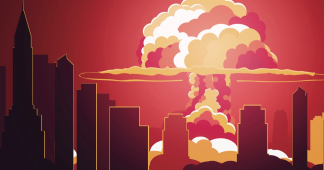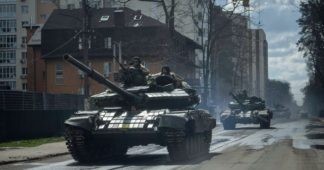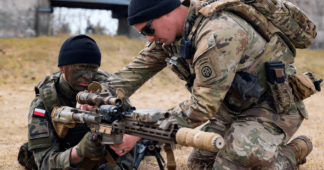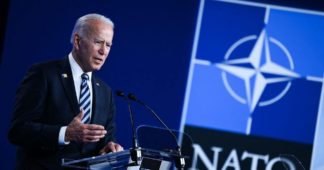By David North
This article was originally posted on Twitter.
The New York Times editorial titled “The War in Ukraine is Getting Complicated, and America Isn’t Ready” indicates serious divisions within and between the White House and intelligence agencies over the course of NATO’s war against Russia. The Times expresses concerns about the war’s “extraordinary costs and serious dangers,” and states “there are many questions that President Biden has yet to answer for the American public with regard to the continued involvement of the United States in this conflict.”
The #NYTimes editorial – titled "The War in Ukraine is Getting Complicated, and America Isn't Ready" – indicates serious divisions within and between the White House and intelligence agencies over the course of NATO's war against Russia. 1/ #UkraineRussianWar pic.twitter.com/v1w5mvrfuD
— David North (@DavidNorthWSWS) May 20, 2022
For the last three months the newspaper has incited pro-war and anti-Russia hysteria. But it now writes that it is not “in America’s best interest to plunge into an all-out war with Russia, even if a negotiated peace may require Ukraine to make some hard decisions.” The Times’ message to the Ukrainian regime is a gloomy one: “If the conflict does lead to real negotiations, it will be Ukrainian leaders who will have to make the painful territorial decisions that any compromise will demand.”
The editorial continues: “Mr. Biden should also make it clear to President Volodymyr Zelensky and his people that there is a limit to how far the United States and NATO will go to confront Russia, and limits to the arms, money, and political support they can muster. It is imperative that the Ukrainian government’s decisions be based on a realistic assessment of its means and how much more destruction Ukraine can sustain.”
Finally, in what is clearly a call for Biden to reconsider his immediate objectives, the Times writes: “The challenge now is to shake off the euphoria, stop the taunting and focus on defining and completing the mission.”
What has led to this evident shift? There are several factors at work. First, it would appear that the defeat in Mariupol is of far greater military significance than the Biden administration has acknowledged, and it has thrown cold water on hopes of a Ukrainian victory.
Second, the disastrous international and domestic economic consequences of the war are becoming increasingly evident. Inflation is spiraling out of control, the financial markets are being hard hit and a major recession appears to be unavoidable.
Third, and most important, the social and economic crisis, accelerated by the war, is fueling the growth of class struggle. The Times acknowledges this, writing that “popular support for a war far from US shores will not continue indefinitely.”
But despite the internal divisions in the ruling class that find expression in the Times’ editorial, the Biden administration will not be able to simply reverse course and extricate itself from the political crisis that it set in motion by provoking the Russian invasion.
The decision to provoke a military conflict was not simply a mistake. It arose from US imperialism’s 30-year pursuit of global hegemony. The pursuit of this goal will not be ended, except by the development of a mass anti-war and socialist movement led by the working class.
We remind our readers that publication of articles on our site does not mean that we agree with what is written. Our policy is to publish anything which we consider of interest, so as to assist our readers in forming their opinions. Sometimes we even publish articles with which we totally disagree, since we believe it is important for our readers to be informed on as wide a spectrum of views as possible.











